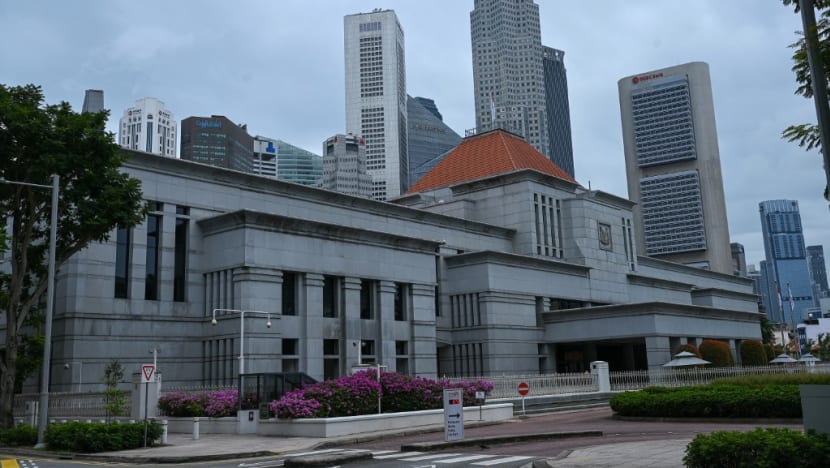Slew of changes to Singapore’s extradition laws after Bill passed in Parliament

A general view shows Parliament House in front of commercial buildings in the financial district in Singapore on Mar 1, 2022. (Photo: AFP/Roslan RAHMAN)
SINGAPORE: Parliament on Monday (Apr 4) passed a Bill introducing a slew of changes to Singapore’s extradition laws, including how to determine if an offence makes someone liable for extradition.
The changes give a “comprehensive update” to existing laws while taking into account developments in international practice, said Second Minister for Law Edwin Tong, adding that the Extradition Act has remained “largely unchanged” since it was introduced in 1968.
“With these amendments, Singapore will enhance its ability to combat crime through international cooperation,” he added.
WHAT ARE THE CHANGES?
The law will now take a “threshold approach” in deciding whether an offence is extraditable.
Under this approach, an offence will be extraditable if it leads to a maximum punishment of more than two years’ jail, except for certain excluded offences.
This replaces the previous “list approach”, where generally only offences listed in the First Schedule to the Act are extraditable.
“We do not expect this amendment to result in an undue increase in incoming extradition requests,” added Mr Tong, noting that in the past, extradition partners have only made requests “in respect of relatively serious offences”.
There are also now more restrictions on surrendering a requested fugitive, such as in cases where the fugitive only has a short imprisonment term remaining – generally deemed as less than six months.
Another restriction is when the fugitive cannot be prosecuted in the other jurisdiction, owing to the limitation period, meaning the timeframe in which legal action can be brought.
In addition, fugitives will be able to consent to their extradition and waive extradition proceedings.
“This saves State resources, and prevents the fugitive from being detained longer than necessary in Singapore as there is no need for a full extradition hearing to be carried out,” Mr Tong said.
CLARIFICATIONS BY MPs
Four Members of Parliament (MP) rose to speak on the Bill, asking for technical and procedural clarifications, among others.
Mr Murali Pillai (PAP-Bukit Batok) noted that a magistrate can issue a warrant of apprehension of a fugitive – either by authorisation of the minister, or through an application made directly to the magistrate.
But he questioned why the magistrate should still be given the power to issue this warrant independently.
In response, Mr Tong said this power was retained for provisional arrests in urgent cases where the fugitive is “deemed to be a flight risk”, and there is insufficient time for the requesting state to prepare a full extradition request.
"This allows Singapore to fulfil our obligations under our treaties,” said Mr Tong. But he added that after that, full extradition requests must still be properly submitted.
MP Sylvia Lim (WP-Aljunied) also asked if the Bill is a signal that the Government is “changing its traditional, somewhat guarded approach” towards entering extradition treaties.
Noting that provisions for extradition from non-Commonwealth countries were being brought closer to those for Commonwealth countries, she asked if Singapore saw an interest in having more extradition treaties, including with non-Commonwealth countries.
In response, Mr Tong said the Government's approach has not changed.
“We’ve always been desirous of looking at countries who have a common desire to work with us to strengthen international collaboration on the apprehension of criminals, and to strengthen bilateral cooperation in combatting crime.
“To the extent that these arrangements are seen to be mutually beneficial, work for us, and that we can overcome any issues related to the divergence of our respective legal systems, then we will be prepared to enter treaties or arrangements with them.”














